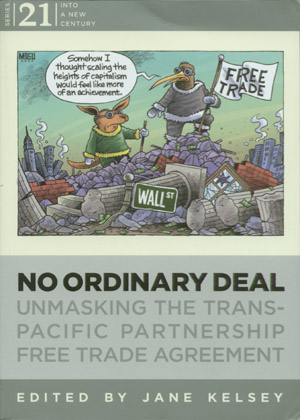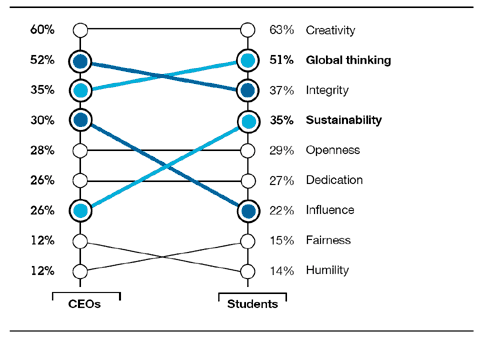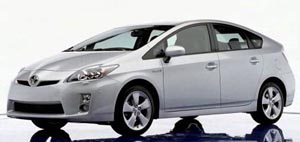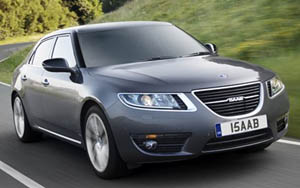Here’s an article from Autoblog that combines several of the themes I enjoy writing about: cars, leadership, management and education.
I’ve already hinted at this on my Facebook fan page, where I seem to post some of the pithy things these days. I sometimes try to avoid blogging about the same thing—a lot of what you see here are ideas that haven’t changed, especially a lot of the posts about social responsibility and branding.
I don’t want to dissuade anyone from getting higher education but one has to remember: education, especially tertiary education, is meant to open your mind to other possibilities and to get you thinking about them critically. It’s why I enjoyed papers at law school like public law and jurisprudence: both had lecturers (Prof Sir Geoffrey Palmer and Assoc Prof Ian Macduff) who enjoyed a well reasoned argument, even when it didn’t agree with their own thinking. It’s also why I didn’t appreciate banking law, or several other papers, where you had to agree 100 per cent with the lecturer, and to hell with independent thinking.
The MBA, then, can be a blessing and a curse. A blessing for those who treat it as it should be: a skill set, providing a framework, from which to analyse things. A curse for those who believe that certain case studies must be followed religiously, failing to take into account the conditions of their own organizations. Which brings us neatly to the Volkswagen case.
It may be a bit of a simplification to say that MBA thinking killed GM, and Volkswagen has eschewed that to become one of the world’s greatest car manufacturers, but it’s not too far from the truth. If you read period American books on management—or even one of my favourites, Lee Iacocca’s autobiography—there is this idea of what ‘efficiency’ is, usually with a lot of outsourcing, finding cheaper and cheaper bases of manufacture, with another eye on how to raise the share price for the quarter. Not the best way to run a firm, especially when visions need to be set for years, decades or quarter-centuries. I’ve written about that aspect before.
But the way John McElroy puts it in his article, ‘efficiency’ means an absence of overlap and vertical integration, yet with them, Volkswagen AG is the world’s largest car company ‘if you measure it by revenue and profits. Its revenue of $200 billion is greater than every other OEM. Last year’s operating profit of $14 billion is the kind of performance you expect from Big Oil companies, not automakers.’ Yet:
Any efficiency expert would tell you that VW is too vertically integrated, has too much overlap and duplication, and has way too many brands. VW, meanwhile, keeps growing bigger, stronger and more profitable …
Efficiency experts will tell you that on an employee-per-vehicle basis, Volkswagen looks hopelessly inefficient. Financial analysts will tell you that the company woefully trails its competitors on a revenue-per-employee basis. But VW will tell you that it makes more money than any other automaker—by far.
In fact, McElroy goes on to say that Volkswagen looks a lot like the General Motors of Alfred P. Sloan—before the MBAs got hold of it.
The idea of ‘efficiency’ is often a misnomer. Most of British industry was dismantled with the mantra of efficiency, essentially giving it up to globalist, technocratic forces, helped along by the Slater Walkers and the governments of the time. Those decades, too, were driven by “experts”—and what resulted was neither efficient nor productive. The decline of British Leyland is perhaps one of the most telling examples of period thinking applied disastrously to the British motor industry, its skilled workers now happily picked up by the Japanese, Germans and Indians.
By all means, if real savings can be had and long-term goals achieved, then efficiency is a wonderful thing. There are areas where technology should aid productivity. But watch out for that word efficiency. It doesn’t always mean what the experts say it means—and if revenue and profit decline as a result of it, and corporate culture is harmed, then you may be better off heeding the lessons that Volkswagen’s management has. Use that MBA as a framework, not as a playbook.
PS.: I took the same stance when arguing over how to save General Motors, as published as a reader letter in Condé Nast Portfolio magazine when it was still running. Naturally, GM followed the downsizing, brand-stripping route because it’s more efficient. Time will tell.







The MBA, then, can be a blessing and a curse. A blessing for those who treat it as it should be: a skill set, providing a framework, from which to analyse things.
Spot on, Jack. I thought of my sister, who got her MBA recently… I shall have to pass this thought on to her, as I think she is doing just that.
(As for me, grad school does not seem to be in the cards; for now, I am learning handyman and homesteader skills, or so it seems.)
Good handyman skills are hard to beat, J.
Please do pass that on. I see a lot of same-again thinking from graduates (not just MBAs, but since I have a few business degrees, I am better placed to judge), and it shouldn’t be happening.
Right you are, Jack, and I will pass it on. I have seen it in other areas, and best I can see, it is a fear of failure, or perhaps a lack of confidence. It seems easier to stay with the tried and true, particularly if the skill set isn’t internalized. I think sometimes it’s worse when it’s a matter of learning by note, compared to learning by rote (person-to-person instruction). There’s less incentive or encouragement to improvise.
It irritates me when I see someone stuck to the page of instructions. I was writing something about my experience with cooking, but I redacted it as I remember my music schooling. I would imagine Mozart and Beethoven alike would be dismayed about Western classical music education today, as no improvisation is generally taught, and instead is confined mostly to jazz music schooling. (Sadly, what I saw was jazz instruction had its own elitist and marginalist hangups.) In short, classical concert artists and working musicians (recording and composing their own work) seemed worlds apart. I was reminded of this meeting Lorne Watson and Thom Kozumplik of Loop 2.4.3 (writing again for We Heart Music) recently. They *are* classically trained percussionists, but are totally open to experimentation. Pained me to hear the percussion director of the university (he was hosting their concert/clinic) say that their work *was* something more of interest for percussionists– that a violin player wouldn’t care a lick for it. It was ironic as there was a symphony orchestra festival, and they, and most of the university, were completely oblivious of the concert/clinic in the same building.
Pardon for another long reply; hopefully the example suffices. In closing, I was talking cars with my father today, incidentally, and as we talked about innovation and new vehicle technologies (4WD, ABS brakes, rotating headlamps, etc.) I thought of you.
J., I think this is where I often go wrong with computing: I follow the instructions! Usually when I go with my gut, things work out a lot better. In fact, the less in the manual, the more you are forced to improvise.
When I learned to play the piano in five hours in 1990, my instructor suggested I go on to jazz. Maybe he was right. But I felt I accomplished what I wanted to. Now I look back and it wouldn’t have been a bad idea to learn some of that improvisation. It is a shame that that’s not encouraged the way my teacher had.
And thank you for thinking of me. I trust you had a nice Christmas and a pleasant start to 2013.
Christmas left a little to be desired, but I’m generally happy with how my plans turned out. First Night 2013 in my area was a lot of fun, however, and exceeded my expectations. Follow the link for photographic evidence.
I hope your holidays were productive and bright, too.
It looked like a really good night!